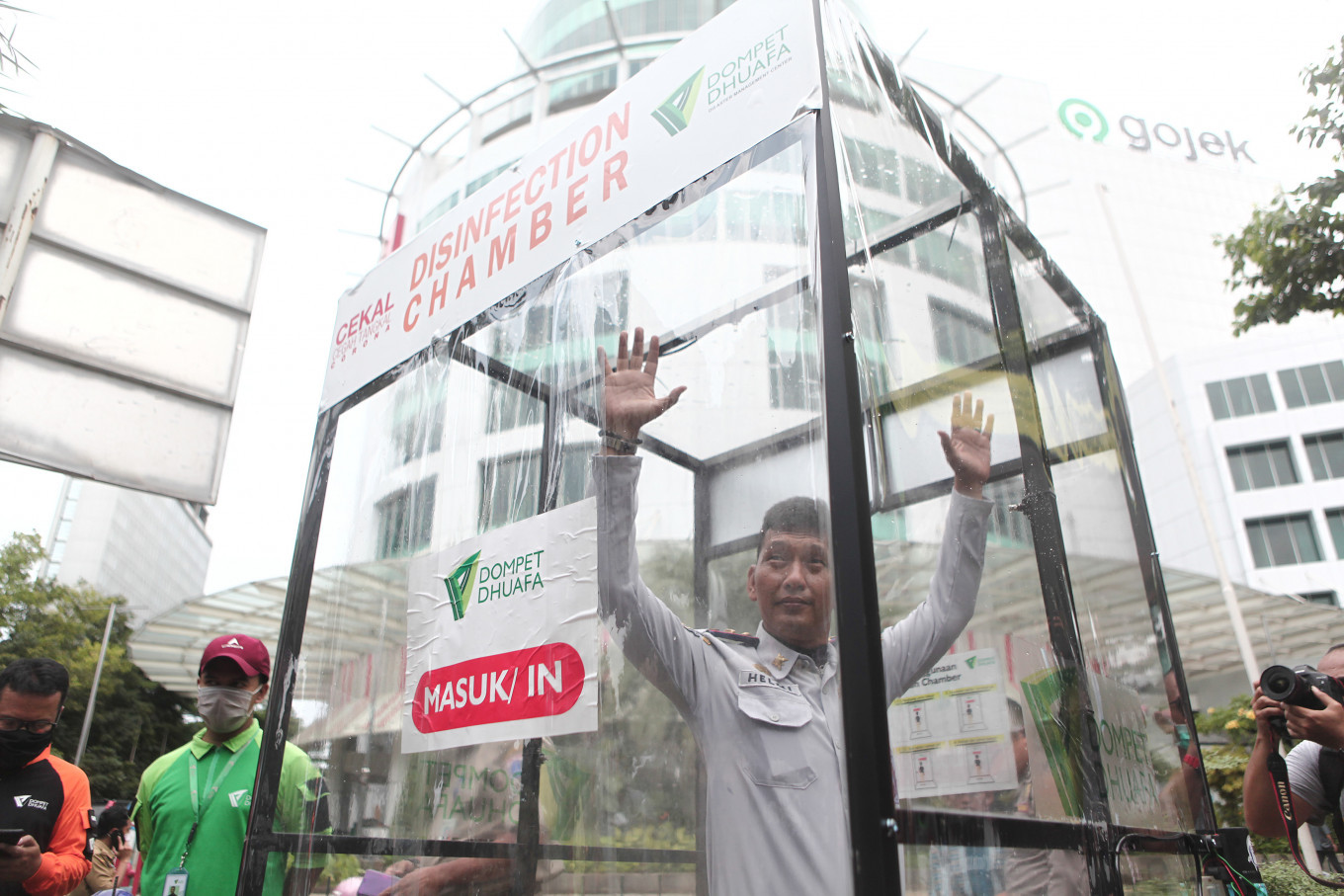Popular Reads
Top Results
Can't find what you're looking for?
View all search resultsPopular Reads
Top Results
Can't find what you're looking for?
View all search resultsResponse to COVID-19 must build resilient future
To tackle COVID-19 in developing Asia-Pacific countries, the survey also calls for an estimated increase in health emergency spending by US$880 million per year through to 2030.
Change text size
Gift Premium Articles
to Anyone
T
he unprecedented public health emergency triggered by the COVID-19 pandemic and its multi-faceted impact on people’s lives around the world is taking a heavy toll on Asia and the Pacific.
Countries in our region are striving to mitigate the massive socioeconomic impact of the pandemic, which is also expected to affect the region’s economic health.
In its annual Economic and Social Survey of Asia and the Pacific 2020 launched recently, the United Nations Economic and Social Commission for Asia and the Pacific (ESCAP) expects growth in Asia-Pacific developing economies to slow down significantly this year.
Bold investments to sustain the region’s physical and economic wellbeing is imperative. The survey advises policymakers to protect the economic health of the region with measures that support affected businesses and households and prevent economic contagion.
To tackle COVID-19 in developing Asia-Pacific countries, the survey also calls for an estimated increase in health emergency spending by US$880 million per year through to 2030. Fiscal support will be crucial in enhancing health responders’ ability to monitor the spread of the pandemic and caring for infected people.
ESCAP is also calling on Asia-Pacific countries to consider setting up a regional health emergency preparedness fund.
The pandemic is also an opportunity for us to rethink our economic growth path that has come at a heavy cost to people and planet. According to the latest ESCAP assessment on implementing the 2030 Agenda for Sustainable Development, Asia and the Pacific is not on track to achieve any of the 17 Sustainable Development Goals (SDGs) by 2030, with regression on several environmental goals.
This stands in stark contrast with the region’s impressive gains in material prosperity, which have been powered by intensive resource use.
We are currently paying the price amid a public health emergency in a region with 97 of the 100 most air-polluted cities in the world and 5 of the 10 countries most vulnerable to climate change. Economic policymaking is understandably focused on maximizing growth to reduce poverty and create jobs.
Yet, we need to question this when the methods of growth undermine its sustainability over the long term.
The 2020 survey is proposing a transition towards a growth path that ensures we bequeath a healthy planet to future generations. It is calling for a shift in the paradigm of production and consumption, which is at the core of all economic activities.
The survey identifies challenges and constraints to making this switch for each group of stakeholders. The good news is that it is possible to take on these challenges and align the goals of all stakeholders with the 2030 agenda’s goal of sustainability.
In particular, the survey urges governments in the region to embed sustainability in policymaking and implementation, transition out of fossil fuel dependency and support the greening of finance.
The region continues to provide $240 billion worth of annual subsidies to fossil fuels while investments in renewables remain at $150 billion.
Businesses can integrate sustainability by factoring in environmental, social and governance aspects in investment analysis and decisions. Carbon pricing will be a key tool to reduce emissions and mitigate climate-related risks. The region is already a leader in adopting the emerging sustainable business paradigms of the shared economy and circular economy.
All of us as consumers must understand the importance of switching to sustainable lifestyles. This will begin with increasing awareness of the impact of consumer choices on people and planet.
With headwinds to the region’s development journey strengthened by the COVID-19 pandemic, let us heed the UN secretary general’s call to mobilize for a decade of action to build a sustainable and resilient future.
______
United Nations under-secretary-general and executive secretary of the Economic and Social Commission for Asia and the Pacific (ESCAP)










